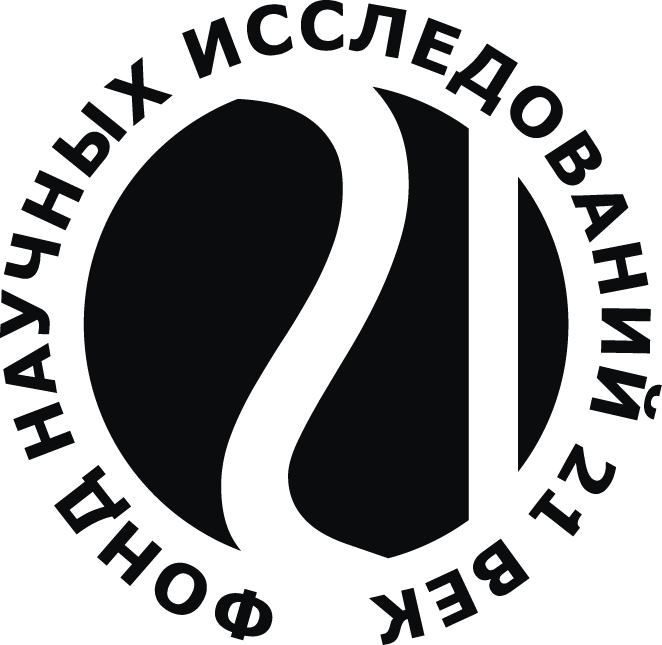ЭВОЛЮЦИЯ ПАРАДИГМ НАСЛЕДОВАНИЯ И РАЗВИТИЯ И ИХ ВЕДУЩАЯ РОЛЬ В СОЗДАНИИ ИННОВАЦИОННЫХ СЕЛЕКЦИОННЫХ ТЕХНОЛОГИЙ
Аннотация
Ключевые слова
Полный текст:
PDFКак процитировать материал
Литература
Anokhin P.K. Uzlovye Voprosy Teorii Funktsionalnykh Sistem. Moscow: Nauka; 1980. (In Russ.)
Arshinov V.I., Budanov V.G. [The role of synergetics in formulating of a new picture of the World]. In: Vyzov Poznaniyu. Strategii Razvitiya Nauki v Sovremennom Mire. Moscow: Nauka, 2004. 386 p. (In Russ.)
Astaurov B.L. Nasledstvennost i Razvitiye. Moscow: Nauka; 1974. 359 p. (In Russ).
Baranov V.S., Baranova Ye.V., Ivashenko T.Ye., Aseyev M.V. Genom Cheloveka i Geny Predraspolozhennosti. (Vvedeniye v Reproduktivnuyu Meditsinu). Saint Petersburg: Intermedika; 2000. (In Russ.)
Belousov L.V. [Morphogenesis, morphomechanics, and genome]. Vestnik VOGiS, 2009;13(1):29-35. (In Russ.)
Bogdanova Ye.D., Makhmudova K.Kh. Epigenetika Myagkoi Pshenitsy. Almaty; 2012. 106 p. (In Russ.)
Vavilov N.I. [Critical review of the modern status of genetic theory of breeding of plants and animals]. In: Vavilov NI. Zakon Gomologicheskikh Ryadov v Nasledstvennosti i Izmenchivosti. Leningrad: Nauka; 1987. p. 224-246. (In Russ.)
Vavilov N.I. Izbrannye Trudy Tom 5. Moscow-Leningrad; 1965. p. 275. (In Russ.)
Vanyushin B.F. [Materialization of epigenetics, or small changes with big consequences]. Khimiya i Zhizn 2004;(2):32-37. (In Russ).
Vasilyev A.G. Epigeneticheskye Osnovy Fenetiki: Na Puti k Evolutsionnoy Meronomii. Yekaterinburg; 2005. 640 p. (In Russ.)
Galitskiy V.A. [A hypothesis about the mechanism of the initiation of de novo DNA methylation by small RNA and of allelic exclusion]. Tsitologiya. 2008;50(4):277-86. (In Russ.)
Golubovsky M.D. Vek Genetiki: Evolutsia Idey i Ponyatiy. Saint Petersburg: Borey Art; 2000. 262 p. (In Russ.)
Grishko N.N., Delone L.N. Kurs Genetiki. Moscow: Selkhozgiz; 1938. 354 p. (In Russ.)
Gustaffson A. [Vavilov and parallel variability]. In: Genetika i Blagosostoyanye Chelovechestva. Moscow: Nauka; 1981. p. 40-53. (In Russ.)
Dawkins R. The Selfish Gene. Oxford: Oxford University Press; 1976.
Dragavtsev V.A., Sakharov V.I. [On a method of statistical analysis of long-term modificationsin plants populations]. Zhurnal Obshey Biologii. 1972;(6):733-9. (In Russ.)
Dragavtsev V.A., Tsilke R.A., Reyter B.G. et al. Genetica Priznakov Produktivnosti Yarovykh Pshenits v Zapadnoi Sibiri. Novosibirsk: Nauka SO AN; 1984. 230 p. (In Russ.)
Dragavtsev V.A., Litun P.P., Shkel N.M., Nechiporenko N.N. [A model of eco-genetic control of the quantitative characters of plants]. Doklady AN SSSR. 1984;274;(3):720-3. (In Russ).
Dragavtsev V.A. [A new method of genetic analysis of polygenic quantitative characters of plants]. In: Identifitsirovannyi Genofond Rasteniy i Selektsiya. Saint Petersburg: VIR; 2005. p. 20- 35. (In Russ.)
Dragavtsev V.A. [The problems of filling the gaps between genes and characters in modern breeding]. Izvestiya RGAU-MSHA. 2009;(2):110- 22. (In Russ.)
Dragavtsev V.A., Makarova G.A., Kochetov A.A., Kocherina N.V., Mirskaya G.V., Sinyavina N.G. [Some tasks of agrophysical securing of breeding technologies for eco-genetic increasing of productivity and yield of plants]. Agrofizika. 2011;(1):14-22. (In Russ.)
Dragavtsev V.A. [The eco-genetic organization of quantitative characters of plants and the theory of selection indexes]. In: Ekologicheskaya Genetika Kulturnykh Rasteniy. Krasnodar: VNII Risa; 2012. p. 1231-50. (In Russ.)
Dragavtsev V.A. [Lessons from the evolution of plant genetics]. Biosfera. 2012;4(3): 251-62. (In Russ.)
Dragavtsev V.A. [How to aid in sating the humanity]. Biosfera. 2013;5(3):279-90. (In Russ.)
Drize Yu. [From genome to proteome]. Poisk. 2014;(52):6. (In Russ.)
Zhuchenko A.A. [The genetic nature of adaptive potential of cultivated plants]. In: Identifitsirovannyi Genofond Rasteniy i Selektsia. Saint Petersburg: VIR; 2005, p. 36-101. (In Russ.)
Inge-Vechtomov S.G. [Yeast prions and the central dogma of molecular biology]. Vestnik RAN. 2000. 70(4);299-306. (In Russ.)
Kononkov P.F. Ocherk o Razvitii Biologii i Selskohoziaystvennykh Nauk v Sovetskiy Period. Moscow: Rossiyskiy Universitet Druzhby Narodov: 2007. 82 p. (In Russ.)
Korochkin L.I. Biologia Individualnogo Razvitiya. Moscow: Izdatelstvo MGU; 2002. 264 p. (In Russ.)
Kocherina N.V., Dragavtsev VA. Vvedenie v Teoriyu Ekologo-Geneticheskoi Organizatsii Poligennykh Priznakov Rasteniy i Teoriyu Seektsionnykh Indeksov. Saint Petersburg: AFIDon Bosko: 2008. 87 p. (In Russ.)
Kuznetsov V.V., Dmitriyeva G.A. Fiziologiya Rasteniy. Moscow: Izdatelstvo Abris; 2011. 784 p. (In Russ.)
Kuhn T. The Structure of Scientific Revolutions. Chicago: Univ. Chicago Press; 1962.
Kackser G. [Kinetic models of development and heredity]. In: Modelirovaniye v Biologii. Moscow: Inostrannaya Literatura; 1963. p. 42-64. (In Russ.)
Lavrov S.A., Mavpodiev Ye.V. [Epigenetic inheritance of characters and its possible role in plans microevolution]. Zhurnal Obschey Biologii. 2003;64(5):403-20. (In Russ.)
Lipton B. Umnye Kletki: Biologiya Ubezhdenii. Izdatelstvo Sofiya; 2011: 224 p. (In Russ.)
Lobashov M.E. Genetika 2nd Ed. Leningrad: LGU; 1967. (In Russ.)
Maletskiy S.I., Melentyeva S.A. Tatur IS, Yudanova SS. Maletskaya EI. [Conservation of hybrid vigor in the apozygotic progeny of sugar beet]. Vestnik NAN Belarusi Agronomicheskiye Nauki. 2013;1:65-72. (In Russ.)
Maletskiy S.I., Roik N.V., Dragavtsev V.A. [The third variability, the types of heredity and the reproduction of plant seeds]. Selskokhoziaystvennaya Biologiya. 2013;(5):3-29. (In Russ.)
Maletskiy S.I. [Geometrical code of life by V. Vernadsky]. Vestnik Ukrainskogo Obschestva Genetikov i Selektsionerov. 2013;11(2):321-48. (In Russ.)
Markel A.L. [Physiological genetics]. Vavilovskiy Zhurnal Genetiki i Selektsii. 2014;18(1):112-24. (In Russ.)
Odum E.P. Ecology. New York: Holt, Rinehart and Winston; 1963.
Panshin B.A. [Breeding of sugar beet]. In: Teoreticheskiye Osnovy Sekektsii Rasteniy Tom 3. Moscow-Leningrad: Gosselkhozizdat; 1937. p. 439-482. (In Russ.)
Ratner V.A. Genetika, Molekulyarnaya Kibernetika. Lichnosti i Problemy. Novosibirsk: Nauka; 2002. 172 p. (In Russ.)
Rakhman M.M., Dragavtsev V.A. [The new approaches to prediction of plant heterosis]. Selskokhoziaystvennaya Biologiya. 1990;(1):3-12. (In Russ.)
Rekombinantnye Molekuly: Znacheniye Dlya Nauki i Praktiki. Moscow: Mir; 1980. (In Russ.)
Riger R, Mikhaelis A. Geneticheskiy i Tsitogeneticheskiy Slovar. Moscow: Kolos; 1967. 607 p.
Rozenberg G.S. [Holism + reductionism: two roads to the temple]. Vestnik RAN. 2014;84(9):830833. (In Russ.)
Savel’ev S.V. Izmenchivost’ i Genialnost’. Moscow; 2012. (In Russ.)
Sverdlov Ye.D. [DNA in the cell: from molecular icon to the problem of what is life]. Vestnik RAN. 2003;73(6):497-505. (In Russ.)
Sverdlov Ye.D. [Does biological reductionism pass away? Then what is next?]. Vestnik RAN. 2006;(8):707. (In Russ.)
Szent-Gyorgyi A. Introduction to a Sub molecular Biology. N.Y.-L.: Academic Press; 1963.
Stent G. Molecular genetics: An introductory narrative. San Francisco: W.H. Freeman & Co; 1971. 650 p.
Strunnikov V.A. [The third variability]. Priroda. 1989;(2):17-27. (In Russ.)
Siukov V.V., Kochetkov D.V., Kocherina N.V., Chesnokov Yu.V., Borner A., Lovasser U. [Detection of QTL determining quantitative characters of spring wheat under Middle Volga conditions]. Vestnik Saratovskogo Gosagrouniversiteta Imeni NI Vavilova. 2012;(10):91-94. (In Russ.)
Tolkovyi Slovar po Obshey i Molekulyarnoy Biologii, Obshey i Prikladnoy Genetike, DNKtekhnologii i Bioinformatike Tom 2. Moscow: Akademkniga, Medkniga; 2008. 308 p. (In Russ.)
Waddington K.H. Morfogenez i Genetika. M.: Mir; 1964. (In Russ.)
Waddington K.H. [The main biological concepts]. In: Na Puti k Teoreticheskoy Biologii. Moscow: Mir; 1970. p. 11-38. (In Russ, translated from: Towards Theoretical Biology.)
Haken H. Erfolgsgeheimnisse der Natur Synergetik: Die Lehre vom Zusammenwirken. Deutsche Verlags-Ansalt GmbH, 1992.
[Chemistry of fidelity]. Poisk. 2013;(24):23. (In Russ.)
Chadov B.F. [Epigenetic phenomenology of conditional mutants of Drosophila melanogaster: morphosis and modifications]. In: Epigenetika. Novosibirsk: Nauka SO RAN; 2013. p. 500-33. (In Russ.)
Chesnokov Yu.V., Pochepnya N.V., Borner A., Lovasser U., Goncharova E.A., Dragavtsev V.A. [Eco-genetic organization of quantitative characters of plants and mapping of loci determining the agronomycally-important characters of soft wheat]. Doklady Akademii Nauk. 2008;418 (5):1-4. (In Russ.)
Chesnokov Yu.V., Pochepnya N.V., Kozlenko L.V., Sitnikov M.N., Mitrofanova O.P., Syukov V.V., Kochetkov D.V., Lovasser U., Borner A. [Mapping of QTL determining the agronomicallyimportant characters of spring wheat in different ecological regions of Russia]. Vavilovskiy Zhurnal Genetiki i Selektsii. 2012;16(4/2):970-86. (In Russ.)
Churaev R.N. [About synthesis of epigenes]. Preprint of Institute of Cytology and Genetics of the Siberian Branch of Academy of Sciences of the USSR. Novosibirsk; 1981. 35 p. (In Russ.)
Churaev R.N. [The applied aspects of epigenetic conception]. Zhurnal Obschey Biologii 1982;43(1):79-87. (In Russ.)
Shabanov D. [Being not limited by paramutations]. Computerra. 2006;(23). (In Russ.)
Engelgardt V.A. Integratism: a way from the simple to the complicated in comprehending life phenomena. Voprosy Filosofii. 1970;(11):103-115. (In Russ.)
Epigenetika Rasteniy: Sbornik Nauchnikh Trudov. Sostaviteli: S.I. Maletskiy, E.V. Levites. Novosibirsk: Institute of Cytology and Genetics of the Siberian Branch of the Russian Academy of Sciences; 2005. 374 p. (In Russ.)
Yudanova S.S. Miksoploidiya Kletochnykh Populyatsiy Sakharnoy Svekly i Yeyo Svyaz s Reproduktivnymi Priznakami. Ph. Theses. Saint Petersburg: VIR; 2004. 126 p. (In Russ.).
Alberts B., Bray D., Lewis R.M., Roberts K.,Watson J. Molecular Biology of the Cells. New York: Garland; 1994. 369 p.70. Alleman M., Doctor J. Genomic imprinting in plants: observation and evolutionary implications. Plant Mol Biol. 2000;43(2-3):147-61.
Bastow R., Mylue J..S, Lister C., Lippman Z., Martienssen R.A., Dean C. Vernalization requires epigenetic silencing of FLC by histone methylation. Nature. 2004;427:164-7.
Borner A., Schulman T., Furste A., Costel H., Lethold B., Roder M.S., Weber W.E. Mapping of quantitative trait loci determining agronomic important characters in hexaploid wheat. Theor Appl Genet. 2002;105:921-36.
Brenton R.G., Kaur A., Gunning D., Zipursky S.L., Rowen .L, Clements J.C. The organization and evolution of the Dipterian and Hymenopterian Down syndrome cell adhesion molecule (Dscam) genes. RNA. 2004; 10:1499-506.
Celotto A.M., Graveley B.R. Alternative splicing of the Drosophila Dscam pre-mRNA temporally and spatially regulated. Genetics. 2001;159:599-608.
Cleland R.E. Oenothera Cytogenetics and Evolution. N.Y.: Acad. Press; 1972. 370 p.
Danchin E., Charmantier A., Champagne F. Beyond DNA: integrating inclusive inheritance into an extended theory of evolution. Nature Rev Genet. 2011;12:475-86.
Dragavtsev V.A. Algorithms of an Eco-genetic Survey of the Gene Fund and Methods of Creating the Varieties of Crop Plants for Yield, Resistance and Quality. Saint Petersburg: VIR; 2002. 41 p.
Dragavtsev V.A., Dragavtseva Ye.V. Mechanisms sustaining displacement of quantitative trait dominance in spring wheat of various geographical regions. Russian Journal of Genetics. 2011;47(5):53- 7.
Durrant A. The environmental induction of heritable change in Linum. Heredity. 1962;17:27-61.
Greval S.S., Moased D. Heterochromatin and epigenetic control of gene expression. Science. 2003;301:798-802.
He Y., Michaels S.D., Amasino R.V. Regulation of flowering time by histone acetylation. Science. 2003; 302:1751-4.
Hurd P.J. The era of epigenetic. Brief Funct Genomics. 2010;9:425-8.
Jablonka E., Lamb M.J. The epigenome in evolution: beyond the modern synthesis. Vestnik VOGiS. 2008; 2:242-54.
Moose S.P., Mumm R.H. Molecular plant breeding as the foundation for XXI century crop improvement. Plant Physiol. 2008;147:969-77.
Nurse P. The end of understanding. Nature. 1997;387:657.
Meyer P., editor. Plant Epigenetics. Leeds: University of Leeds; 2005. 320 p.
Richards A.J. Plant Breeding System. London-N.Y.: Chapman & Hall; 1997, p. 298-333.
Rosenberg A. Darwinian Reductionism, or How Stop Worrying and Love Molecular Biology. Chicago: Univ. Chicago Press; 2006. 272 p.
Schmitz R.J. The secret garden: Epigenetic alleles underlie complex traits. Science. 2014;343:1082- 3.
Sung S., Amasino R.M. Vernalization and epigenetics: how plants remember winter. Curr Opin Plant Biol. 2004;7:4-10.
The Limits of Reductionism in Biology. London: Ciba Foundation; 1997.
Thomas W.T.B. Prospects for molecular breeding of barley. Ann Appl Biol. 2003;142:1-12.
Sinclair T.R. Purcell LC. Is a physiological perspective relevant in a “genocentric” age? J Exper Botany 2005;56:2777-82.
DOI: http://dx.doi.org/10.24855/biosfera.v7i2.56
© ФОНД НАУЧНЫХ ИССЛЕДОВАНИЙ "XXI ВЕК"










 ФНИ "XXI век" представляет: новый номер журнала "МАШИНЫ И МЕХАНИЗМЫ"
ФНИ "XXI век" представляет: новый номер журнала "МАШИНЫ И МЕХАНИЗМЫ"